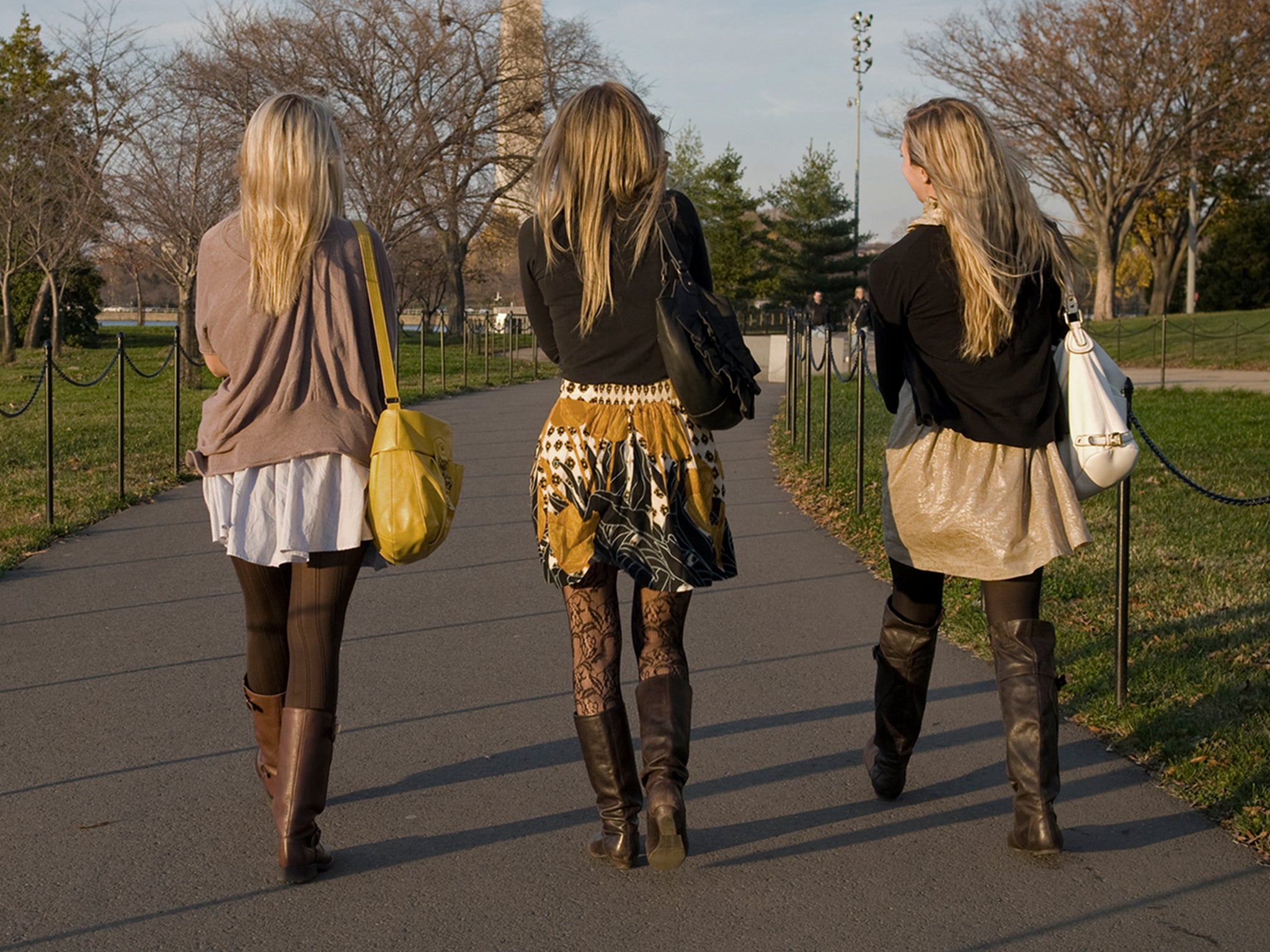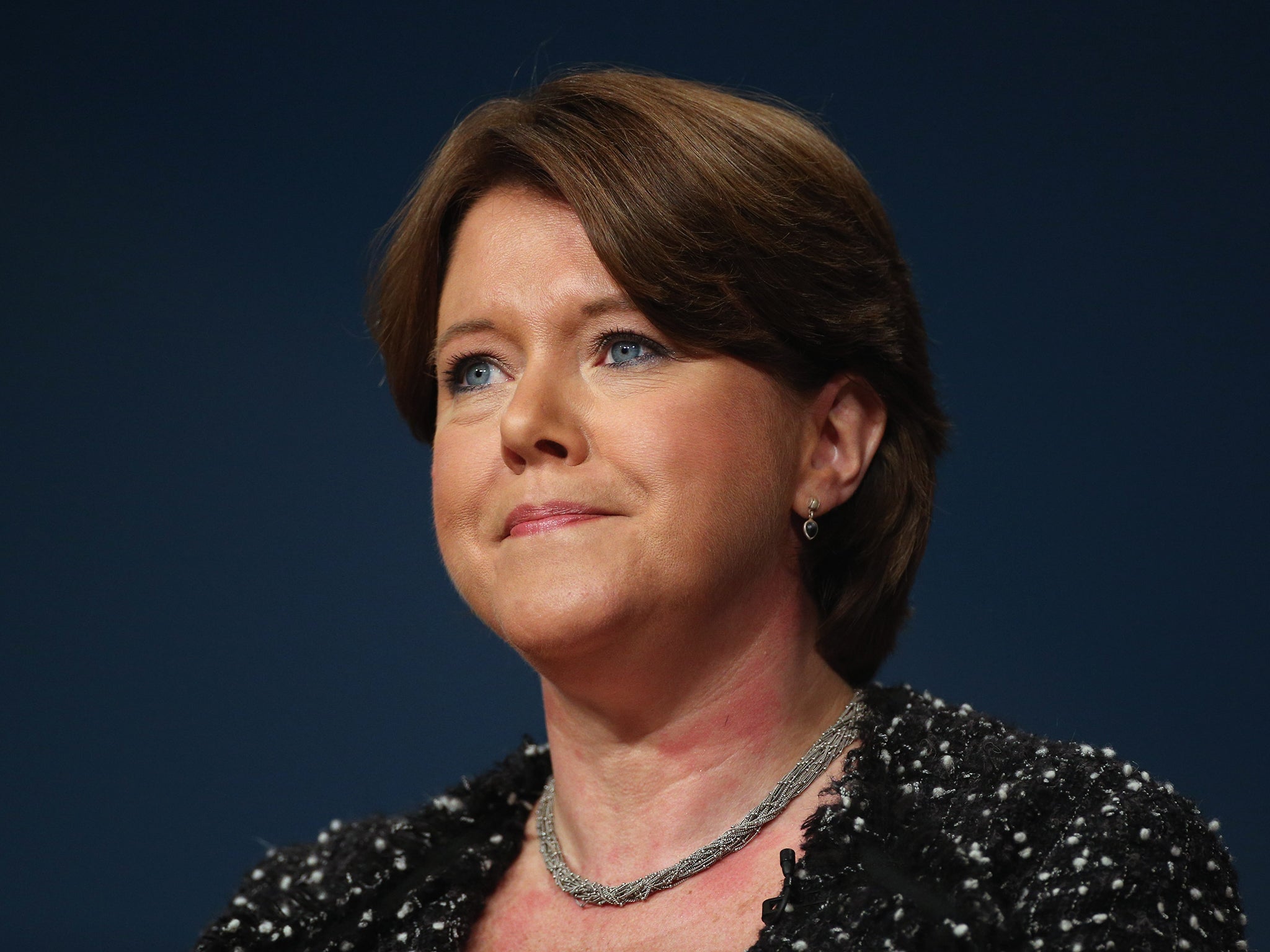‘Upskirting’ must be made a criminal offence as girls as young as 10 are photographed, campaigners say
Figures show just a third of police forces in England and Wales are recording incidents

Calls are mounting for “upskirting” to be made a criminal offence as figures reveal that just a third of British police forces keep available records on the disturbing trend.
Girls as young as 10 have been targeted by perpetrators taking illicit photographs under their clothing, commonly using phones or hiding cameras in public places.
Campaigners fear the practice has been growing with the increasing availability of technology, but police are not required to record incidents under current rules, leaving the true scale unknown.
Just 15 of 44 police forces in England and Wales recorded allegations of upskirting in the past two years, according to a freedom of information request by the Press Association.
A further 14 said there were no such records on their system, and 15 forces either refused or failed to respond.
Of the 78 incidents reported, only 11 resulted in suspects being charged using existing laws on voyeurism, indecency and public order.
Several of the known victims were children, including girls aged 10 and 14 interviewed by Avon and Somerset Police, and a 16-year-old in Dorset – and locations included nightclubs, restaurants and the streets.
Maria Miller, the chair of the Women and Equalities Select Committee, said current laws were not adequate to address the practice.

“People say ‘oh there’s only a few cases’, but that’s because it’s not properly categorised and we’re looking at whether there should be a bespoke law to surface more of these appalling incidents, which are absolutely contrary to what anyone would consider legal behaviour,” she told The Independent.
“I don’t think anyone can belittle the impact of someone taking an abusive photograph in this way without consent.
“There are many instances where women have to deal with behaviour that does not have their consent and this is clearly on the unacceptable end of the spectrum.”
The Women and Equalities Select Committee is considering a new law on upskirting as part of an ongoing inquiry into women’s experience of everyday sexism and sexual harassment in public.
The Government has so far resisted calls for change but will be required to formally consider its recommendations later this year.
Ms Miller said a new law on upskirting could deter sexual harassment, cause more victims to report incidents, offer police clarity and enable clear-cut prosecutions.
“We cannot let people say it’s not necessary to have bespoke laws in certain circumstances,” she added. “It is really clear that this is falling outside of current laws.”
Ms Miller, the Conservative MP for Basingstoke, pointed to hundreds of prosecutions sparked by a 2015 law that criminalised revenge pornography as a potential indicator.
Like upskirting, the practice was covered by previous legislation in some circumstances, but the lack of a specific law drove inconsistent approaches by police and prosecutors, while leaving victims unaware of their rights.
Figures showed dramatically different approaches across the country, with the Metropolitan Police recording the highest known number of upskirting incidents at 25, and others on zero.

Some forces had secured prosecutions for offences including taking an indecent photograph of a child, voyeurism and conspiring to outrage public decency, but others said cases had not progressed due to insufficient evidence.
Merseyside Police recorded 12 crimes against female victims, including four children, but admitted that because upskirting is not a specific offence it is “possible that relevant crimes may not have been captured” by keyword searches.
Police forces for Bedfordshire, Cleveland, Derbyshire, Durham, Essex, Gloucestershire, Hertfordshire, Humberside, Lancashire, Leicestershire, South Yorkshire, Surrey, Warwickshire, West Mercia and West Midlands all said they had no record of any incident being reported.
One woman said she reported two men taking and sharing indecent images of her on their phones to police, but they could not take it further.
The victim, in her mid-20s, said the law had failed to keep up with digital technology and left gaps to be exploited by sexual predators, and the practise was dismissed as a “prank”.
“We have this culture – unless you were physically touched, you were not assaulted,” she added.
“So often women don’t know it’s happened to them. It’s not always about sexual gratification – in some cases it’s harassment, and in my case it was revenge because they were trying to hit on me and I said no.”
She said the “horrible” experience left her feeling powerless, later encountering people who believed she should “get on with it”.
“This new law is a no-brainer and I think everyone agrees with that, it’s just going to be a case of how long it takes for everyone to agree,” she added.
Clare McGlynn, a professor of law at Durham University, said many victims are unaware they have been targeted and can go to police.
“Then if they do, often police don’t know this can be prosecuted under other laws and victims can be met with disbelief or a minimising of the offence,” she told The Independent.
“A bespoke offence would show us more the reality, but it’s only the start of that conversation.”
Prof McGlynn, who specialises in the legal regulation of image-based sex abuse such as revenge porn, said victims currently have no automatic right to anonymity and may fear drawing attention to photographs already circulating online.
“The advent of technology means that it’s easier than ever before to commit this kind of crime,” she warned.
“Upskirting is done for all sorts of reasons – it might be for sexual gratification, to harass someone or to make money.”
Prof McGlynn and a colleague made recommendations to the former justice secretary about prospective legal changes in December but were told current laws were sufficient.
“So far the Government are not to be moved, which I find baffling,” she said.
“It’s a very straightforward law to change, there are examples of how it has been done elsewhere – and it would be a good message that we are taking these forms of street harassment seriously.”
Sarah Green, for the End Violence Against Women Coalition, said the law should be “urgently examined”.
“The police responses show that the police are clearly struggling to recognise ‘upskirting’ distinctly, even though the disclosures reveal that it is commonly connected to existing sexual offences including voyeurism and sexual assault,” she added.
”It is notable that girls and young women are disproportionately targeted where that information has been recorded.”
A spokesperson for the Ministry of Justice said: “This behaviour is a violation of privacy and causes considerable distress for victims.
“Prosecutors have a range of powers to deal with these cases. We continue to keep legislation under constant review to ensure we can bring offenders to justice.”
Additional reporting by PA
